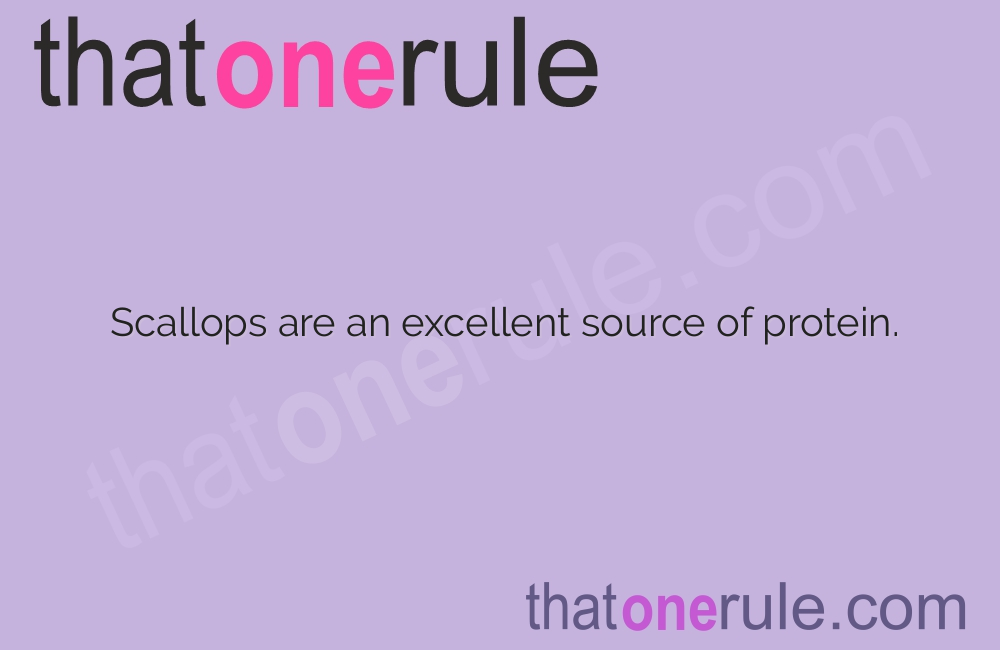Discover the Nutritional Benefits of Scallops

Scallops are an excellent source of protein.
Scallops are low in calories, making them a great option for weight management.
Scallops are rich in vitamins and minerals, including vitamin B12 and zinc.
Scallops are a good source of omega-3 fatty acids, which are beneficial for heart health.
Scallops are a versatile seafood option that can be cooked in various ways.
Scallops contain antioxidants that can help protect against cell damage.
Scallops are a delicious and nutritious seafood choice.
Scallops contain no carbohydrates, making them suitable for low-carb diets.
Scallops are a sustainable seafood choice, as they are farmed in a responsible manner.
Scallops provide a good amount of iron, which is essential for healthy blood production.
Scallops contain selenium, a mineral that supports thyroid function.
Scallops are a natural source of iodine, which is important for a healthy metabolism.
Scallops can be a great addition to a balanced diet.
Scallops are a gluten-free food, making them suitable for those with gluten sensitivities.
Scallops are a lean source of protein, making them a heart-healthy choice.
Scallops contain phosphorus, a mineral needed for strong bones and teeth.
Scallops can be a delicious alternative to meat for those looking to reduce their meat consumption.
Scallops are low in saturated fat, making them a healthier choice than many other protein sources.
Discover the Nutritional Benefits of Scallops part 2
Scallops can be a great source of energy due to their high protein content.
Scallops are cholesterol-free, making them a good choice for heart health.
Scallops are a nutrient-rich seafood option that can support overall wellbeing.
Scallops can be a tasty addition to salads, pasta dishes, and stir-fries.
Scallops are a low-calorie option that can help with weight loss goals.
Scallops contain essential amino acids needed for muscle repair and growth.
Scallops are a source of potassium, which helps maintain healthy blood pressure levels.
Scallops are a good source of magnesium, a mineral that supports nerve and muscle function.
Scallops can provide a sense of satiety, promoting feelings of fullness and reducing overeating.
Scallops can be a great source of vitamin E, an antioxidant that supports skin health.
Scallops are a sustainable seafood choice that supports ocean conservation efforts.
Scallops can be a delicious addition to a seafood stew or chowder.
Scallops contain zinc, an essential mineral that supports immune function.
Scallops are a nutrient-dense food that can help meet daily vitamin and mineral needs.
Scallops can be cooked quickly, making them a convenient protein option for busy individuals.
Scallops provide a good amount of copper, which is important for the production of red blood cells.
Scallops are low in mercury, making them a safe seafood choice for pregnant women.
Scallops can be a flavorful ingredient in sushi rolls or ceviche.
Scallops are a source of vitamin D, which is important for bone health.
Scallops can be a satisfying and nutritious seafood option for any meal of the day.
Scallops contain choline, a nutrient that plays a role in brain health.
Scallops are a good source of folate, a B vitamin needed for cell growth and development.
Scallops can be a tasty and healthy alternative to other high-fat protein sources.
Scallops contain omega-3 fatty acids that may help reduce inflammation in the body.
Scallops can be a delicious and nutritious addition to a Mediterranean-style diet.
Scallops are low in sodium, making them suitable for those on a low-sodium diet.
Scallops can be enjoyed grilled, pan-seared, or baked for a flavorful and nutritious meal.